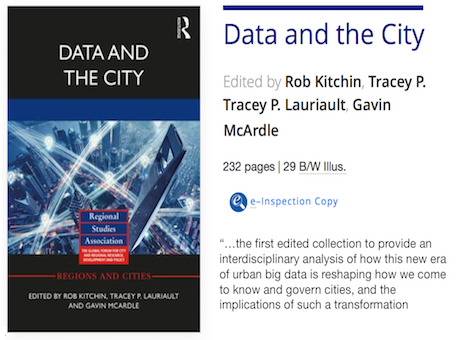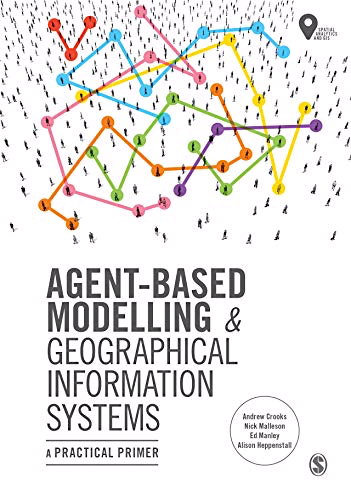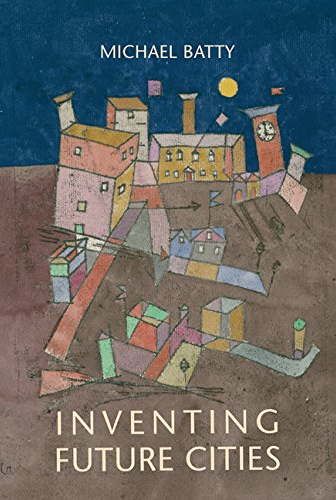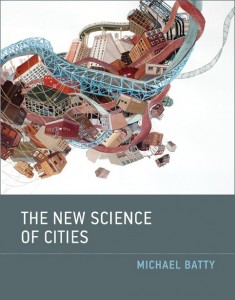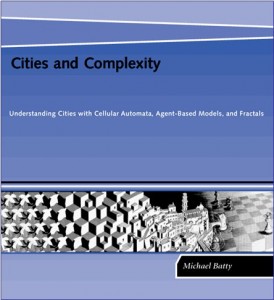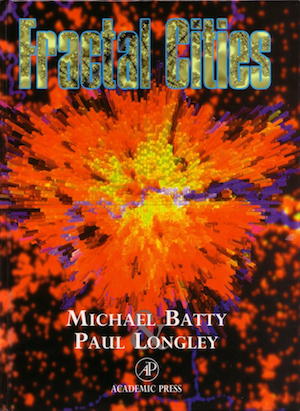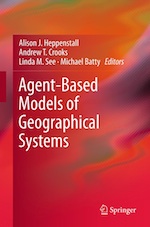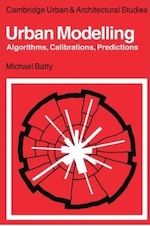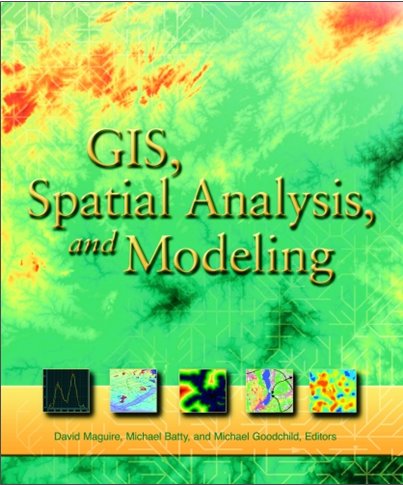Questioning what bigness means in terms of Big Data and the City is a key quest in understanding what the massive increase in data volumes means to understanding the urban challenges that lie ahead and our future planning of the city to alleviate the many problems that currently beset them. Kitchin, Lauriault, and McArdle’s book Data and the City is “…the first edited collection to provide an interdisciplinary analysis of how this new era of urban big data is reshaping how we come to know and govern cities, and the implications of such a transformation. This book looks at the creation of real-time cities and data-driven urbanism and considers the relationships at play. By taking a philosophical, political, practical and technical approach to urban data, the authors analyse the ways in which data is produced and framed within socio-technical systems. They then examine the constellation of existing and emerging urban data technologies. The volume concludes by considering the social and political ramifications of data-driven urbanism, questioning whom it serves and for what ends” (from the Routledge web site).
I have a paper in the book about big data: Batty, M. (2017) Data About Cities: Redefining Big, Recasting Small, in Kitchin, R., Lauriault, T. P., and MaArdle, G. (Editors) Data and the City, Routledge, London, 31-43, that you can download here in its original form.

